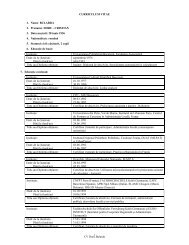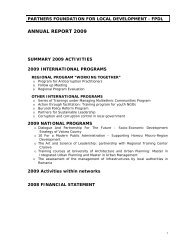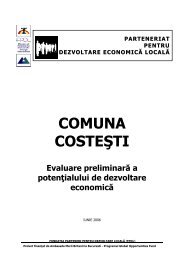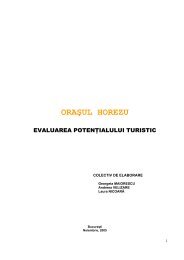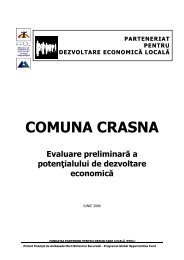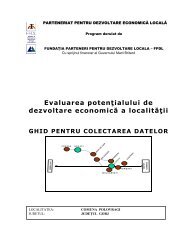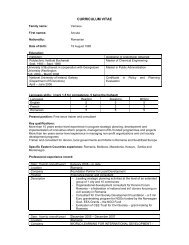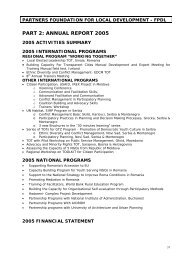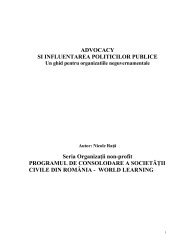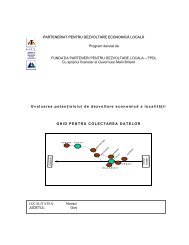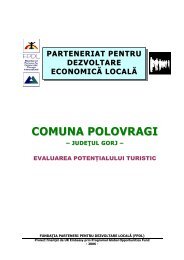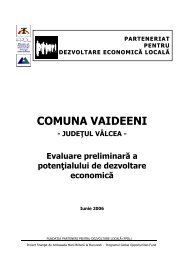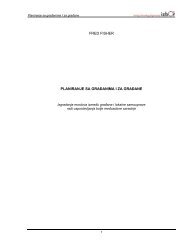Organizational Development: A Manual for Managers and ... - FPDL
Organizational Development: A Manual for Managers and ... - FPDL
Organizational Development: A Manual for Managers and ... - FPDL
You also want an ePaper? Increase the reach of your titles
YUMPU automatically turns print PDFs into web optimized ePapers that Google loves.
In general, there are a few options <strong>for</strong> the typical kind of response, <strong>and</strong> an unlimited number of<br />
possible behaviours within each mode. One could say that the mode of behaviour depends on<br />
some regular reasons <strong>and</strong> represents certain order, <strong>and</strong> the specific reaction within the mode<br />
represents chaos. This behavioural chaos as any chaos is definitely bounded <strong>and</strong> it is often<br />
unpredictable at the same time. Now let us see how it works.<br />
How to respond? R<strong>and</strong>om search<br />
In the state of com<strong>for</strong>t an organism is quiet; it may even sleep. The state of discom<strong>for</strong>t requires<br />
activity. The first <strong>and</strong> general reaction of an organism to an emerging need is anxiety. If the<br />
specific reaction to the given situation is not somehow determined, it can only be accidental.<br />
The law of nature is simple. Doing nothing in a state of rising discom<strong>for</strong>t means death when the<br />
boundary of existence space is reached. Doing anything in this situation means to utilize a chance<br />
to satisfy the need accidentally <strong>and</strong> stay alive. Delay in doing ‘at least something’ means fewer<br />
chances to survive.<br />
Thus the simplest <strong>and</strong> most universal mode of behaviour comes to light. Mathematics called it<br />
r<strong>and</strong>om search. It may help when nothing else helps. It never pretends to give an optimal solution.<br />
It may occur to be harmful. But it gives a chance, only a chance. When nothing else remains – it<br />
may mean a lot.<br />
Since r<strong>and</strong>om behaviour is always bounded by the set of available alternatives, it represents<br />
chaos.<br />
If an organism has no memory, each time the situation looks new. So, next time in the same<br />
situation, an organism without memory might apply the same mode of behaviour - the new r<strong>and</strong>om<br />
search, in this case. Thus, unconditioned choice supposes absence of memory.<br />
Stereotype behaviour<br />
If an organism has a memory <strong>and</strong> may recall a repeating situation as a known one, <strong>and</strong> also recall<br />
the r<strong>and</strong>omly found reaction that helped in the previous case (identified as the same or relevant) –<br />
then a r<strong>and</strong>om search is not needed. Even anxiety does not come – instead the organism<br />
switches to a programmed reaction, fixed in the memory as a kind of software to supplement the<br />
hardware of the structural mechanisms of homeostatic regulation. This program may involve a<br />
certain set of different simple actions. That is why this mode of response is called stereotype<br />
behaviour.<br />
26



